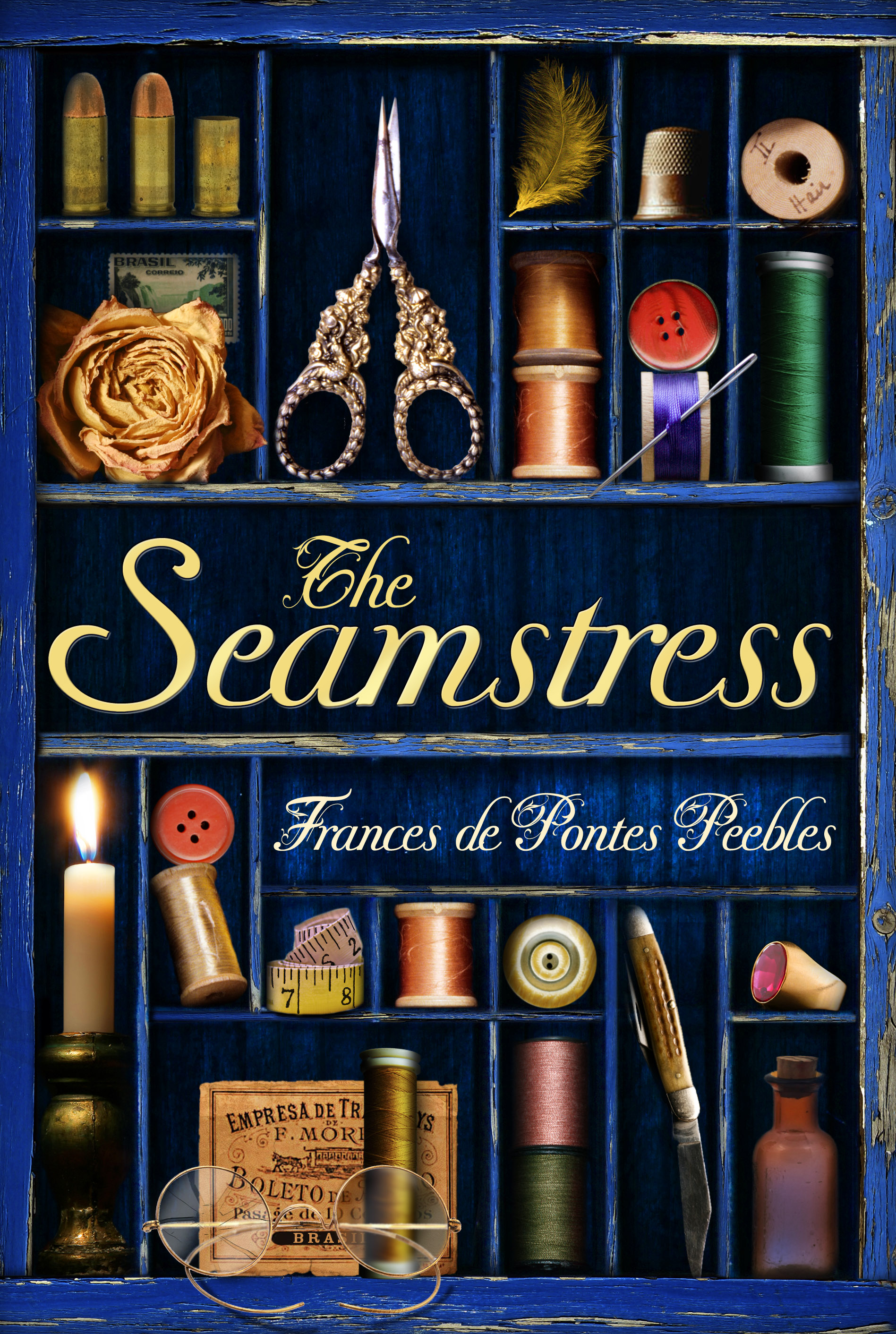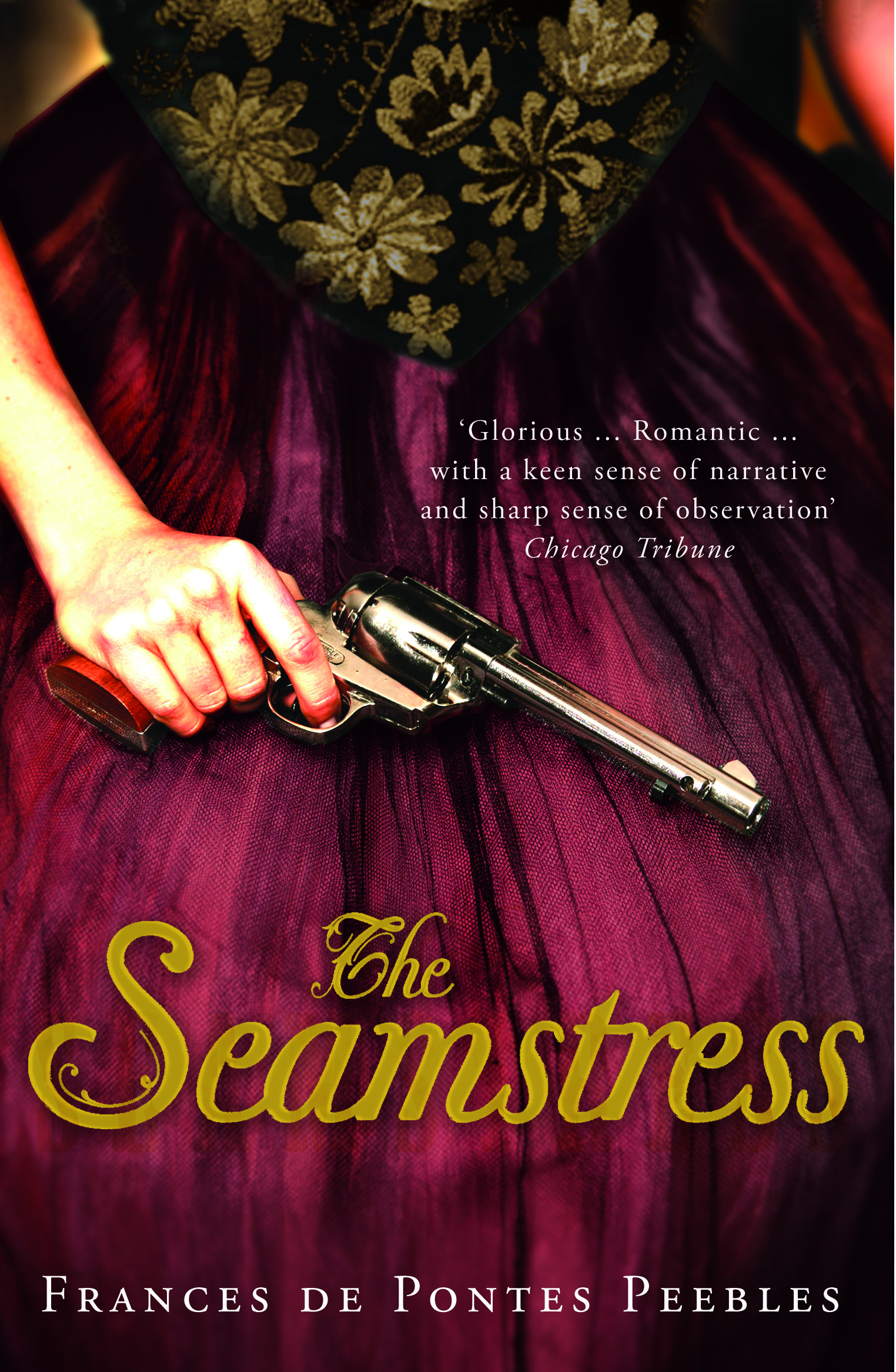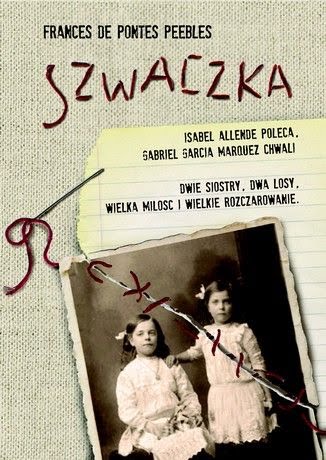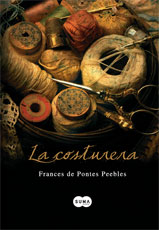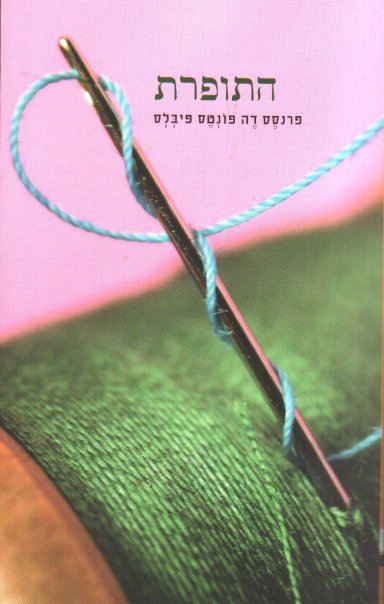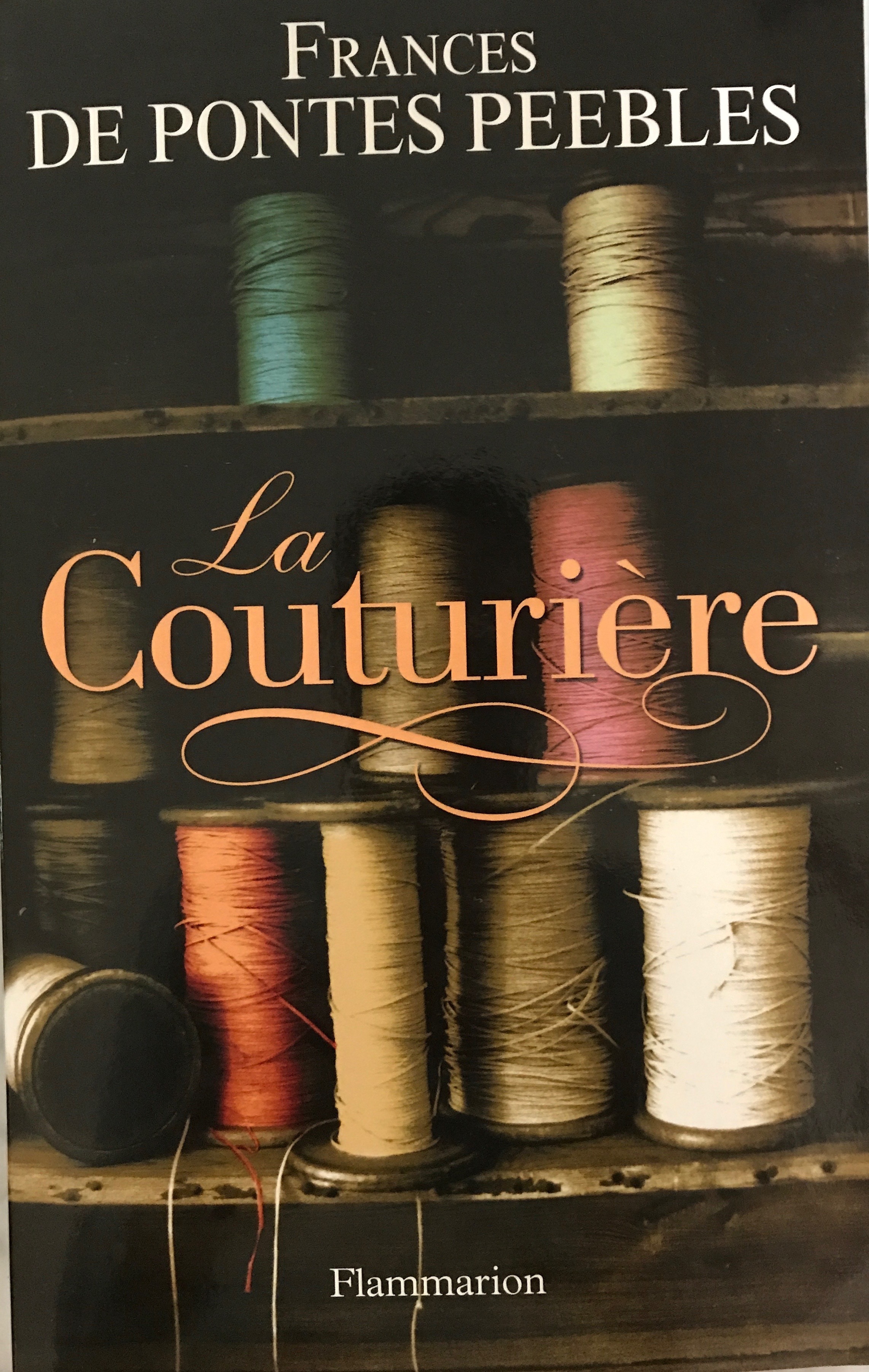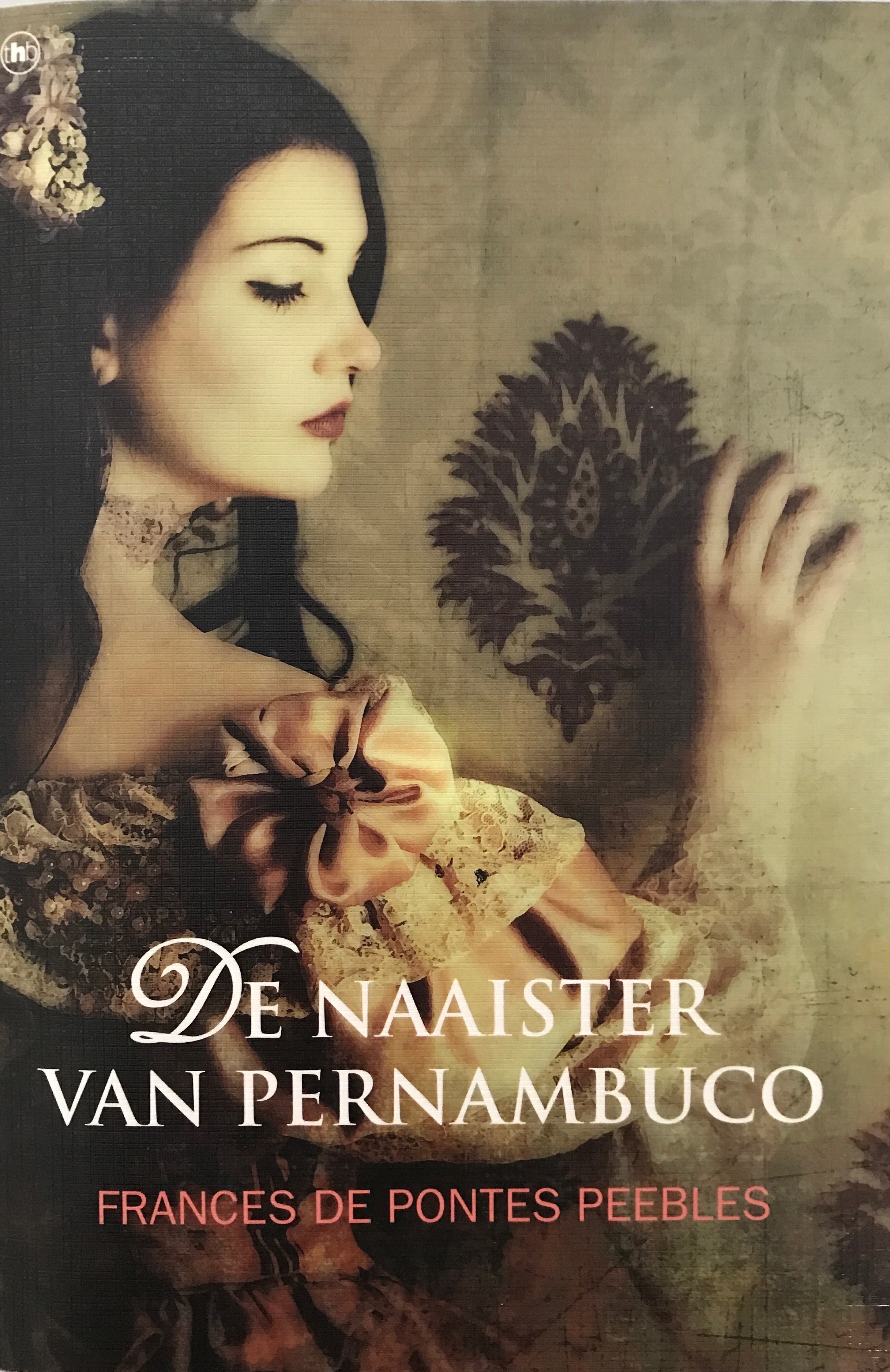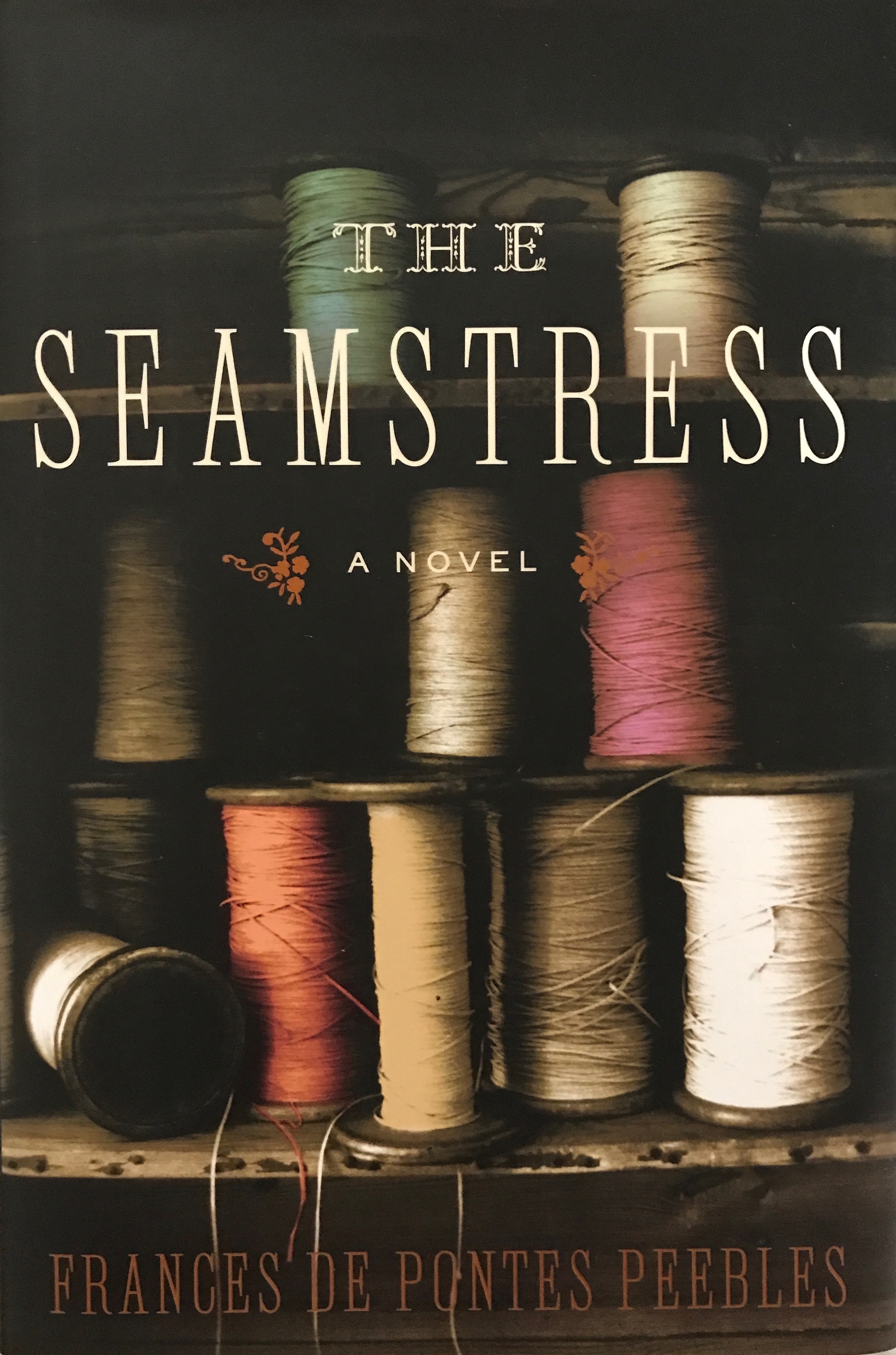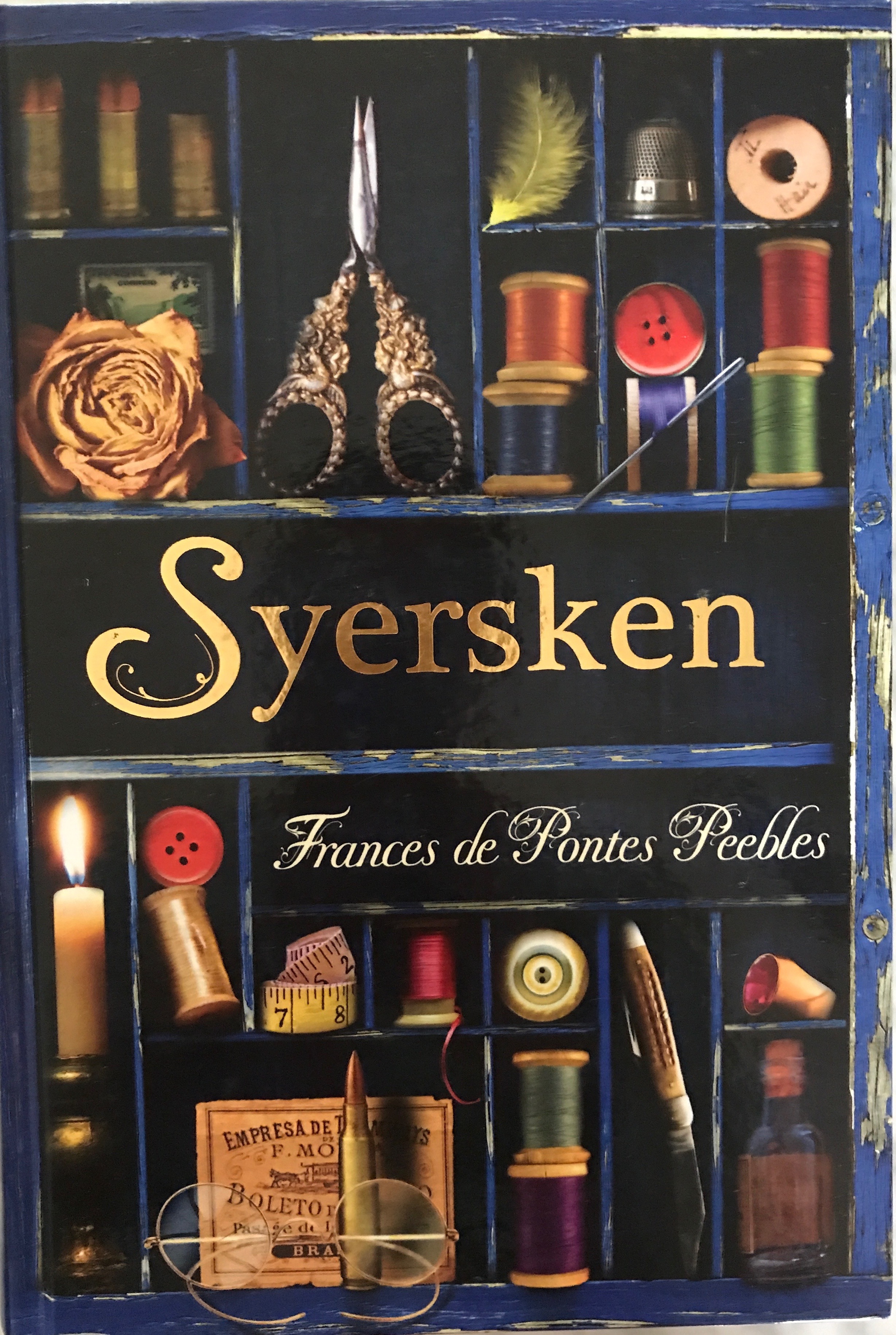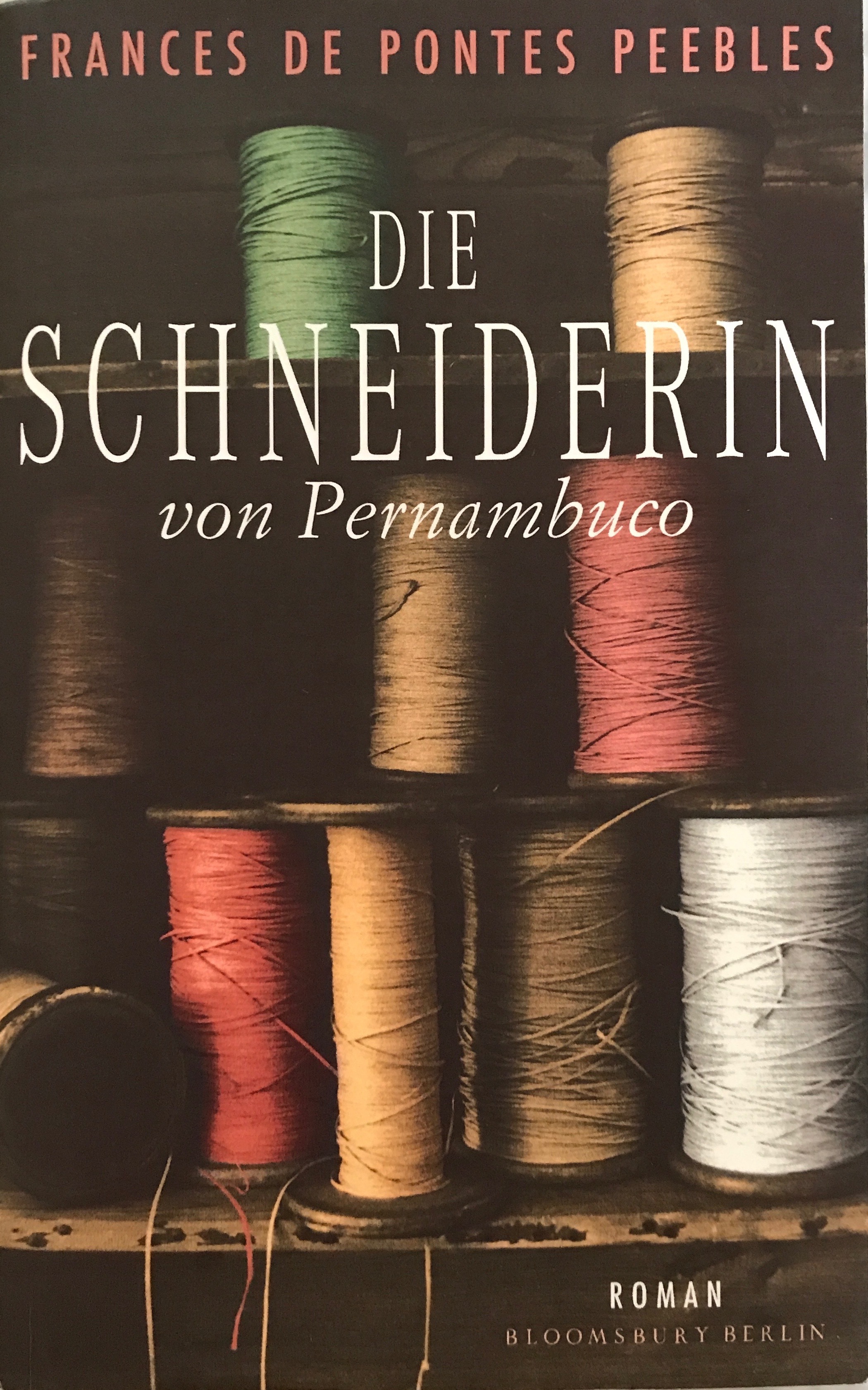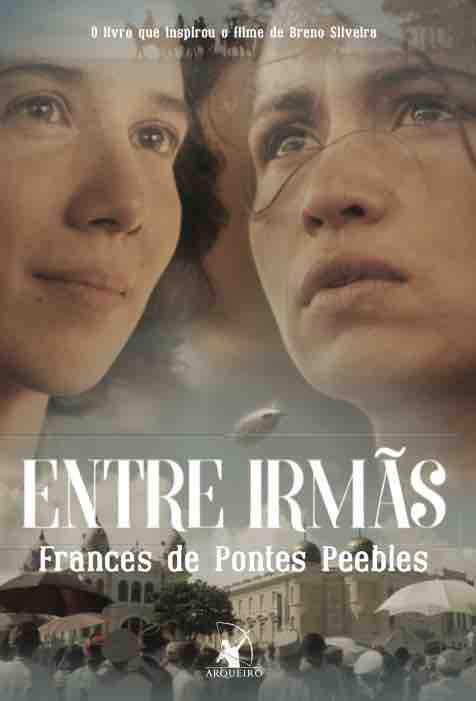The Seamstress: A Novel
“...a sweeping historical saga...rollicking, violent, and heartbreaking...”
““...A glorious narrative...””
Winner of the Elle Grand Prix for fiction, the James Michener-Copernicus Society of America Award, and translated into nine languages, THE SEAMSTRESS transports readers to 1930's Brazil.
Praise for "The Seamstress"
“It's rare to find a first novel by a writer barely out of a workshop who isn't looking inward. But The Seamstress, a glorious narrative production by recent University of Iowa Writers' Workshop graduate and Chicago resident Frances de Pontes Peebles, turns our eyes toward the country of the writer's birth—Brazil—and its barren northeast states and carries us back in time to the early 1930s. The story we fall into, as in John Gardner's notion that reading a good novel is like falling in a continuous waking dream, gives us as good as we can get…Peebles has made an agonizingly romantic story in the best sense of the word—it all takes place against the nicely realized political turmoil of modernizing Brazil and the growing threat of Nazism in Europe. But good stories don't grow out of thin air. They begin with the writer's keen sense of narrative—Peebles certainly has it—and sharp sense of observation. You can go to any page of the book and see that Peebles has that power in spades…I ate this book up." Read the full review:
— Chicago Tribune Review by Alan Cheuse August 16, 2008
Miami Herald
Book Review & Interview by Connie Ogle
Aug. 17, 2008
“Her Brazil has moral bandits and hard choices…Frances de Pontes Peebles would like us all to understand something about Brazil, where she was born: ‘It's not just samba and soccer and the Amazon.’ Peebles…goes a long way toward proving that assertion in her breathtaking debut novel. Her rollicking, violent and heartbreaking story is set during the late 1920s and early '30s in northeastern Brazil…The Seamstress…is a sweeping historical saga that encompasses elements of Brazil unfamiliar to most of us: vast stretches of desert scrubland, daring bandits, crippling drought, a harshly repressive society and the lives of two sisters eager—desperate, even—to escape their impoverished existence in a tiny mountain town…the affecting depth of the characters fuels The Seamstress…”
Read the full review:
The Seamstress wins First Place, “Elle’s Lettres” Readers’ Prize 2008
“Our readers faced down a boggling 1,600 pages of fiction in this month’s face-off among three epic historical novels. But they had no problem deciding that Brazil-born newcomer Frances de Pontes Peebles earned the laurels for a saga set in her native land between the World Wars.”
“…richly woven tale…the best book I’ve read in the past year.”
“Fans of Isabel Allende will find much to recommend in this saga, with its fully realized characters, gripping moral quandaries, tense drama, and lyrical descriptive prose.”
— Elle Magazine, September 2008
Austin American Statesman’s Summer Reading Guide:
“Two orphaned sisters come of age in Brazil during the turbulent 1930s in Frances De Pontes Peebles' 'The Seamstress'(Harper Collins, $25.95). Alternating between Luiza and Emília's stories, the author, a University of Texas graduate who was born in Brazil, writes with vivid details about the climate, both physical and psychological, that the girls inhabit. One sister chooses the life of a countryside bandit. The other flees to a life of high society in the city. Their talents as seamstresses bind them together and provide each girl unusual power in a male-dominated world. Despite their separation, a connection endures as they read about each other's accomplishments in the newspaper. De Pontes Peebles elevates the beach novel genre without losing the steaminess.”
— Nicole Villalpando
“If You Like Isabel Allende, check out The Seamstress, by Frances de Pontes Peebles. Like the bestselling Chilean author, Peebles, in her first novel, deploys a richly detailed South American canvas, an epic family-centered plotline, and strong female characters. The story follows two sisters from their rural upbringing in 1920s Brazil to their very different lives as adults: Emília marries into a well-off family in Recife and has her own dress-making shop, Luzia becomes the wife of an infamous scrubland cangaceiro (part-bandit, part-revolutionary), earning her own nickname, The Seamstress. Vivid scenes of a place and a time in history that many readers will know little about make this a page-turner for armchair travelers.”
— National Geographic Traveler Review, July/August 2008
“Set in the wild, 1930s world of the author’s native Brazil, this atmospheric tale tells of two orphaned sisters whose seamstress aunt takes them in. One, nicknamed Victrola (for her injured arm, bent like a phonograph arm), is kidnapped by cangaceiros – bandits – and becomes a legendary rebel. The other marries, moves to the city, opens a dress shop and follows her sister’s escapades in the papers.”
— New York Post “Required Reading,” August 3, 2008
The Seamstress featured in Latina Magazine’s Cultura Guide for August 2008:
“Two sisters separated by a kidnapping. Female bandits sparring with land barons. Revolution in 1930s Brazil. This is the backdrop for The Seamstress, a debut novel by Frances de Pontes Peebles that covers political turmoil, heartache and the unshakable bond between characters Emilia and Luzia dos Santos.”
— Latina Magazine Cultura: The Guide
“This impressive debut novel seduces with its sweeping story, strong characterization, and extraordinarily vivid detail. A good read-alike for fans of Isabel Allende.”
— Booklist (starred review)
“Prepare to be enthralled by the adventures of Emilia and Luzia, two sisters in 1930's Brazil who share a common ability with needle and thread and through their divergent paths give a stunning portrayal of a divided society. As lush and exotic as its locale, The Seamtress is truly original and distinctive.”
— BookSense
“The Seamstress is a gripping portrait of the lives of two sisters caught in the political unbalance of a country at a crossroads. Bittersweet, beautifully written, this sweeping saga is as impossible to put down as it is to forget."
— Aryn Kyle, author of The God of Animals.
“Lavishly detailed... [The] attention to detail immerse[s] the reader in both guilded halls and unsavory bandit camps.”
— Publishers Weekly
“This is fascinating historical fiction—that is not yet another novel about the Tudors! Yahoo! Here are great characters living in dangerously exotic 1930's Brazil. Think Isabelle Allende meets Jeffrey Eugenides with some of Dorothy Dunnett's masterful intrigue mixed in.”
— BookStream
“An epic saga from a talented new writer that will definitely keep you reading. Emilia and Luzia dos Santos are orphaned sisters who are separated by twists of fate, but throughout life they remain connected by heart and mind. This is a brilliant Brazilian 'western,' a great surprise, and, now, one of my all-time favorites.”
— Lillian Kinsey, American Booksellers Association, August Indie “Next” List
“Frances de Pontes Peebles's The Seamstress [Harper, Aug.] is a novel as big, sprawling, lush and exotic as its locale, Brazil in the late 1920s and early 1930s. The stories of the dos Santos sisters, Emilia and Luzia (called Victrola because of a deformed arm) reflect a society caught between feudal mores and rising modernity. Emilia escapes the countryside by marrying the son of a wealthy doctor, while Luzia is taken by a group of cangaceiros, rebels and outlaws who terrorize the colonels in control of the interior. But which sister is truly the prisoner and who are the real criminals in society? The juxtaposition of the sisters is a mirror image of a world in turmoil and change. Emilia and Luzia use their skill with the needle to forge their identities, and Peebles uses hers to sew a tapestry of narration that holds the reader enthralled. Although the setting within Brazilian society may be exotic, the sisters' story is universal in its humanity.”
— Publishers Weekly, Galley Talk 7/21/2008
“This engrossing historical saga of Brazil in the 1920s and 1930s follows sisters Emília and Luzia dos Santos from their impoverished childhoods as village seamstresses to their unimaginable futures: Emília marries the scion of an upper-class family in Recife, while Luzia marries The Hawk, an infamous bandit–cum–Robin Hood who terrorizes provincial landowners. Using as backdrop the populist revolt of 1930 and the push to develop Brazil’s enormous resources at the expense of the subsistence farmers, Peebles creates a vast and diverse cast of characters: Dr. Coehlo, Emília’s father-in-law, who believes that the measure of a man’s skull is a predictor of his behavior; The Hawk’s men, all of them killers driven to crime by unjust landowners; Lindalva, a baroness’s daughter who recognizes Emília’s talent as a dress designer and helps her exploit it; and a mélange of scheming politicians, villagers, and society women. However, the novel’s true beauty is the exquisitely realized relationship between Emília and Luzia, two strong women who, despite the separate paths their lives take, remain connected and committed to each other.”
— Library Journal
“Over the course of the book, readers are taken on a deeply satisfying journey through Brazil via the mysteries and loyalties of the human heart.”
Read the full review:
— Kirkus Reviews, 2008 First Fiction Special Edition
Further Reading:
The Seamstress is a work of fiction inspired by historical events.
The following books are great tools to better understand the actual history of northeast Brazil and cangaçeiros:
In English:
- Father of the Poor? Vargas and His Era by Robert M. Levine. Cambridge University Press, Cambridge, UK, 1998.
- When Men Revolt and Why: A Reader in Political Violence and Revolution, edited by James Crowning Davis. The Free Press, New York, 1971.
- Emancipating the Female Sex: The Struggle for Women’s Rights in Brazil, 1840-1940 by June E. Hanner. Duke University Press, Durham, NC, USA, 1990.
- The Bandit King: Lampião of Brazil by Billy Jaynes Chandler. Texas A&M University Press, USA, 1978.
- In Defense of Honor: Sexual Morality, Modernity, and Nation in Early 20th Century Brazil by Sueann Caulfield. Duke Univeristy Press, Durham, NC, USA, 2000.
- Lombroso’s Criminal Man by Gina Lombroso-Ferrero. Patterson Smith Publishing, New Jersey, 1972.
- Bandits by Eric Hobsbawm. Weiderfield & Nicolson, London, 2000.
- Beyond Carnival: Male Homosexuality in Twentieth Century Brazil by James N. Green. The University of Chicago Press, Chicago, 1999.
- Everyday Fashions of the Twenties edited by Stella Blum. Dover Publications, Inc., New York, 1981.
- Everyday Fashions of the Thirties edited by Stella Blum. Dover Publications, Inc., New York, 1986.
- The Brazilian Photographs of Genevieve Naylor, 1940-1942 edited by Robert M. Levine. Duke University Press, Durham, NC, USA, 1998.
In Portuguese:
- A Moda do Seculo XX by Valerie Mendes and Amy de la Haye. Martins Fontes Editora, Brazil, 2003.
- A Moda no Seculo XX by Maria Rita Moutinho. SENAC, Rio de Janeiro, Brazil, 2000.
- O Recife: Histórias de Uma Cidade by Antônio Paulo Rezende. Fundação Cultural do Recife, 2002.
- O Recife e Seus Bairros by Carlos Bezerra Cavalcanti. Câmara Municipal de Recife, Brazil,1998.
- Coronelismo e Dominação by Ibarê Dantas. Universidade Federal de Sergipe, Aracaju, Brazil, 1987.
- Antônio Silvino: O Rifle de Ouro by Severino Barbosa. Companhia Editora de Pernambuco, Recife, Brazil, 1977.
- Coronel, Coroneis: Apogeu e Declino do Coronelismo no Nordeste by Marcos Vinícios Vilaça and Roberto Cavalcanti de Albuquerque. Editora Bertrand Brasil Ltda., Brazil, 2003.
- Angicos Eu Sobrevivi—Confissões de Uma Guerreira do Cangaço by Ilda Ribeiro de Souza. Oficina Cultural Monica Buonfiglio, Brazil, 1997.
- Guerreiros do Sol: Violência e Banditismo no Nordeste do Brasil by Frederico Pernambucano de Mello. Editora A Girafa, Brazil, 2004.
- Santos do Povo Brasiliero by Nilza Botelho Megale. Editora Vozes, Rio de Janeiro, Brazil, 2002.
- O Cotidiano e Seus Ritos: Praia, Namoro e Ciclos de Vida by Thales de Azevedo. Editora Massangana, Recife, Brazil, 2004.
- No Tempo do Bonde Elétrico by Alves da Mota. 3rd Edition, Bagaço Editora, Recife, Brazil, 1997.
- O Dia em que Getúlio Matou Allende e Outras Novelas do Poder by Flávio Tavares. Editora Record, São Paulo, Brazil, 2004.
- Uma Cidade e Dois Prefeitos: Narrativas do Recife mas Décadas de 1930 a 1950 by Virginia Pontual. Editora Universitária Universidade Federal de Pernambuco, Recife, Brazil, 2001.
- Quem Foi Lampião? By Frederico Pernambucano de Mello. Editora Shahli, Recife, Brazil, 1993.
- Superstição no Brasil by Luis da Câmara Cascudo. Global Editora, São Paulo, Brazil, 2001.
- Como se Fabrica um Pistoleiro by Peregrina Cavalcante. A Girafa Editora, São Paulo, Brazil, 2003.
- Vida e Morte no Sertão by Marco Antônio Villa. Editora Ática, São Paulo, Brazil, 2003.
- A Terra e o Homem do Nordeste by Manuel Correia de Andrade. Editora Universitária Universidade Federal de Pernambuco, Recife, Brazil, 1998.
- As Fornalhas de Março: Histórias das Eleições em Recife by Ronildo Maia Leite. Edições Bagaço, Recife, Brazil, 2002.
- História da Vida Privada no Brasil Volume 3: República da Belle Époque à Era do Rádio by Fernando A Novais and Nicolau Sevcenko, editors. Companhia das Letras Editora Schwarcz, São Paulo, Brazil, 1998.
